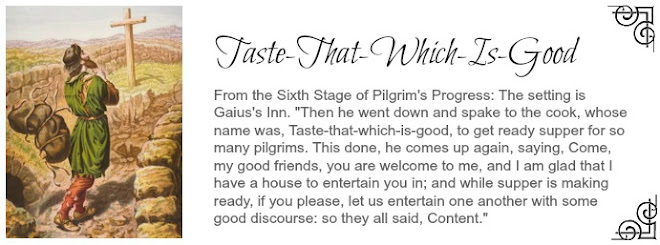ROMANS CHAPTER NINE
INTRO BY REVIEW
Keywords:
Chap 1: Without Excuse
Chap 2: The Law Condemns
Chap 3: There is none righteous
Chap 4: Imputation/Logizomai
Chap 5: Headship/Representation
Chap 6: Mortification/Vivification
Chap 7: Who Shall Deliver
Chap 8: Spirit of Life
Chap 9: Election
Alternate Keywords:
Chap 1: The Indictment Begins (Rom 1:18)
Chap 2: The law instructs but provides no promise/enablement
Chap 3: All have sinned, Total Depravity
Chap 4: Counted Righteous
Chap 5: Two Adams, First Adam/Second Adam
Chap 6: Dying to Sin and Living to God
Chap 7: O’ Wretched Man that I am
Chap 8: No Condemnation/ No Separation
Chap 9: (there are 13 “flow words” )
Memory Verses - Extended Memory Verses
Rom 1:20 - Chap 1: Rom 1:20, Rom 1:1, Rom 1:8, Rom 1:16-20
Rom 2:13 - Chap 2: Rom 2:13, Rom 2:12-16
Rom 3:10 - Chap 3: Rom 3:10, Rom 3:10-12, 3:18, 3:21, 23 3:28-29
Rom 4:3 - Chap 4: Rom 4:3, Rom 4:23-25
Rom 5:19 - Chap 5: Rom 5:19, Rom 5:8, Rom 5:14
Rom 6:11 - Chap 6: Rom 6:11, Rom 6:1-3, Rom 6:22, Rom 6:23
Rom 7:24 - Chap 7: Rom 7:24, Rom 7:18, Rom 7:25
Rom 8:2 - Chap 8: Rom 8:2, Rom 8:1, 8:8-9, 8:28, or whole chapter
Rom 9:11 - Chap 9: Rom 9:11-16, Rom 9:6, 9:8, 9:20, 9:25
REVIEW:
Chapter One showing us that we were all
WITHOUT EXCUSE. That what can be known of God has been made MANFEST IN us and shown to us by GOD. Even the invisible things of God being clearly understood ever since the creation of the world, from the things that are made, even his eternal power and GODHEAD. God is. Who can deny? No one! All are without excuse. As my little girl almost 10 years old at the time said, “There had to be someone that wasn’t made to make all that was made.”
Moving on to Chapter Two, we find that the there is no law to empower us unto the making of our own righteousness. No standard we can erect will ever serve to justify us in the end before a holy God. Having the standard is never enough we must from the first breath uphold all things perfectly and at all times, for it is not the hearers of the law that are just before God but the doers of the law that shall be justified. Again from the mouth of my little girls: “The law tells you what to do, but it doesn’t give you the power to do it.” And if we might assert “We had no standard to guide us, we had no law written on stone to show us the way, how can we then be judged?” We also learned that we evidence all the time the work of the law written on our hearts, we have a conscience, we look at the actions of one another and say approvingly ‘that was good’ or ‘that was bad.’ We have law enough, which if we sin without law we shall also PERISH without law. So then the Law cannot save us, but only condemn.
The Law Condemns, either that law which the Jews were under or even which standard is a “work of the law written in our hearts.”
Then in Chapter Three, the case against us having already been made , yet there is more. We hear an argument from Holy Scriptures written long before the book of Romans. “As it is written,
There is none righteous, no, not one.” A number of scriptures are cited, humbling us, showing us our hopeless state without remedy in ourselves. Some of which are: Psa 14:1-3, Psa 53-13, Psa 5:9, Psa 140:3, Psa 10:7, Isa 59:7-8, Psa 36:1
The charges are numerous, our own inability plainly stated: “None that understands,” “none that seeks after God,” Everyone unprofitable, no one doing GOOD. My Throat like an open grave is a man-eater.
(note: I said “my” not “their” for the difficulty for me is to see my own place in this dreadful list, to see these holy charges falling upon me, but they do if I attempt to stand on my own person, ability and goodness.) My tongue has used deceit, and the deadly poison of an asp is under my lips. Mouth full of cursing -
(too well do I know that truth.) Destruction and misery in my way. Not knowing the way of peace with my wife, my fellow, my friend, and especially MY GOD. The one true cause of all the previously mentioned is summed all up in the greatest of all sins, “There is no fear of God before my eyes.” Had I feared God aright, my entire passion would be for him, my thoughts always running to him, I would have diligently read His book, prayed without ceasing, this Holy Fear would have flavored my every action. Fear that doesn’t cower but cries out “who do I have in heaven but thee and there is none upon earth that I desire besides thee.” Not the fear of cowardice but the Holy fear that COMES to God.
So the testimony being clear that there is
NONE RIGHTEOUS, and we know also that the UNRIGHTEOUS shall not inherit the Kingdom of God. 1Co 6:9-11 Know ye not that the unrighteous shall not inherit the kingdom of God?
But if the unrighteous shall not inherit the kingdom of God, and there is
None righteous, not even me, where can I go? To whom should I flee, for I, having no righteousness of my own, am at a loss, a great and terrible loss, I with no goodness of my own by which I can enter heaven and stand before GOD. My heart cries out in earnest despair
“What righteousness is there then by which I can stand in the day of Judgment?”
IMPUTED RIGHTOUSNESS - GLORIOUS AND EXCEEDINGLY GREAT GOOD NEWS - for what does the scriptures say: Rom 4:3 - Abraham believed God, and it was COUNTED unto him for righteousness. Surely the scriptures included Abraham when they said
there is NONE RIGHTEOUS, and yet Abraham by God was COUNTED righteous. This gives me some hope. This is good news. Can I hope also like Abraham to believe God and by faith to be counted righteous?
Romans Chapter Four assures us that this is the very case:
Rom 4:23-25 Now it was not written for his sake alone, that it was imputed to him; But for us also, to whom it shall be imputed, if we believe on him that raised up Jesus our Lord from the dead; Who was delivered for our offences, and was raised again for our justification.
Jesus Christ suffered and died on the cross in our place and for our sins. Jesus Christ having completed and satisfied in his LIFE and Death all that he set out to do, sin having no more hold on him, HE was raised again, having completed that work which was necessary for our justification.
TO US it shall be
IMPUTED, if we believe on him that raised up Jesus our Lord from the dead. Nothing meritorious in our own faith, but faith the means or instrument which joins us to Christ who did what he did in our place.
THE RIGHTEOUSNESS WE NEED IN ORDER TO STAND IN THE DAY OF JUDGMENT IS BY GOD IMPUTED TO US BY FAITH. So our keyword for Romans chapter four is
IMPUTATION or the Greek word
LOGIZOMAI.
But how can this work? How can the righteousness of another be reckoned or counted as being mine? The answer,
REPRESENTATION or
HEADSHIP being illustrated in
Chapter Five with a comparison between the
First Adam and the Second ADAM, Jesus Christ. Adam was a figure of him that was to come, he representing all that were in him. Because of the representative office of ADAM, when he sinned all that were in him were made sinners, he brought death upon all because he represented all. Jesus Christ also is the HEAD of his people and represented them in all he did both in his living perfectly for us as our head and in his dying in our place upon the cross. Through the obedience of our representative, Jesus Christ, many shall be made righteous.
CHAPTER SIX: So in imputation and headship we have VERY GOOD NEWS, so good in fact that some may bring the abuse either complaining about the gospel being too good and scornfully saying “Shall we continue to sin that Grace may abound?” Or rather finding grace so good thinking they see an allowance for sin - “Let’s sin that grace will abound.” But the answer is a horrified negation, “THIS CANNOT EVER BE.” We should think along these lines - that we are dead to sin and alive to God. We should be
dying daily to sin and
living unto God, free from sin to serve righteousness,
Mortification and
Vivification.
CHAPTER SEVEN describes how we find this dying to sin and living to God difficult. In us, that is in our own flesh there is no strength. Looking in ourselves we do not find the ability to do good. Sin yet remains. We still have flesh remaining within to contend with, and yet being born of God we have new desires, we cry out “
O Wretched man that I am who shall deliver me from this body of death - thanks be to God through Jesus Christ our Lord.”
CHAPTER EIGHT showing us that we are not left as orphans in this world to RUN in our own strength. The
law of the Spirit of Life in Christ Jesus has made me free from the law of sin and death. The description is given - believers walk not after the flesh but after the Spirit. But when we, as described in chapter seven, find ourselves with flesh still remaining, an enemy that beats hard upon us this chapter shows that believers, all of them, are not in the FLESH but in the Spirit. The Spirit is life and peace, we are not in the flesh but in the Spirit if it is true that the Spirit of God dwells in us. And if we do not have the Spirit of Christ then we are not Christians at all and we do not belong to Jesus.
But being believers, we know that the Spirit of God dwells in us and knowing this let us who live in the Spirit also WALK in the Spirit. These fruits will follow, we can pray to this end, live for this goal, we will be mortifying the deeds of the flesh by the same Spirit who dwells in us. This Spirit will give us the nature of Children. We will cry out to God in the Spirit of Adoption, Abba Father. The chapter begins with “
No Condemnation for those who are IN Christ.” And ends with
NOTHING Can separate us FROM Christ. Contained within this chapter we found one of the sweetest of all verses for believers, declaring that GOD causes all things to work together for good. We found the Golden Chain that cannot be broken, and we concluded then that of course nothing can separate us - we cannot be condemned for God justifies and Christ died, and all the calamities and enemies that confront us cannot destroy us or separate us from Jesus Christ. His glory is at stake and he will lose none of his own. We are secure because we are IN him.










